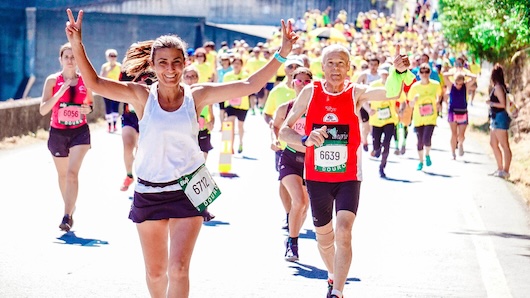
Summer is synonymous with the return of several sporting events! From half-marathons to Ironman, trail running to long-distance cycling, a sports nutritionist can help you fine-tune your preparation in five steps to ensure that your competition day is synonymous with performance and enjoyment.
1. Adapt your basic diet
The priority of your nutritionist is to ensure that your daily diet meets your nutritional needs. This provides your body with the fuel it needs to perform at its best. It is also an opportunity to modify your body composition if it is part of your goals. When there is sufficient time before the event, your nutritionist can help you reduce your body fat percentage or promote muscle mass gain.
During this first step, your nutritionist validates:
- Your consumption of simple and complex carbohydrates to provide the necessary fuel for your workouts.
- Your protein intake and their distribution throughout the day to ensure optimal recovery.
- Your total calorie intake in relation to your needs to achieve an ideal body composition.
- Any micronutrient deficiencies to avoid conditions such as anemia or osteoporosis.
2. Optimize pre-training nutrition
Your nutritionist will advise you on the nutrients to prioritize before training. Together, you will come up with snack ideas to boost your energy while ensuring that you make the right choices to avoid digestive issues during exercise, such as stomachaches, gastroesophageal reflux, or the infamous runner's diarrhea.
3. Optimize post-training nutrition
Nutrition plays a key role after training to ensure proper recovery and reduce the risk of injuries. Your nutritionist will provide guidance on the foods to prioritize and the timing to replenish your energy stores and repair your muscle fibers.
4. Optimize nutrition and digestive tolerance during training
If your sports event lasts more than 1.5 hours, it is important to consume foods or drinks containing carbohydrates during physical activity (Burke et al., 2011). You will have the opportunity to test certain sports products and train your digestive system to tolerate a certain amount of carbohydrates during exertion. Your nutritionist will help you determine the right quantities to consume.
5. Plan the nutritional strategy for D-Day
The final important step is to establish a nutritional "game plan" for the event. In order to maximize your energy reserves and prevent increased fatigue during the competition, your nutritionist will offer you different tools:
- A glycogen loading plan (to be followed in the 24 to 48 hours before the event) to optimize the reserves of simple sugars in the muscles and boost performance.
- An individualized hydration plan calculated based on your sweat rate to determine exactly how much fluid to consume.
- A detailed plan of nutrient-rich foods and beverages to consume during the competition to meet your needs for carbohydrates, fluids, and electrolytes and avoid hitting "the wall."
Remember to schedule a first appointment at least 2 to 3 months before D-Day to have time to fine-tune each of these steps. What are you waiting for to embark on this adventure? Make an appointment with a sports nutritionist today!
Sources:
Louise M. Burke, John A. Hawley, Stephen H. S. Wong & Asker E. Jeukendrup (2011) Carbohydrates for training and competition, Journal of Sports Sciences, 29:sup1, S17-S27, DOI: 10.1080/02640414.2011.585473





